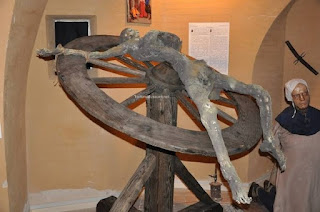The Lykov Family: Forty Years in the Siberian Wilderness
In the heart of Siberia's remote taiga forest, a family lived in complete isolation for 40 years, unaware of the world's seismic shifts and the cataclysmic events that reshaped the 20th century. The Lykov family fled into the wilderness to escape religious persecution by the Bolsheviks, forging a life in one of the planet's harshest environments. Their story, one of resilience, faith, and survival, came to light in 1978 when Soviet geologists stumbled upon their hidden existence.
Fleeing Persecution
The tale of the Lykov family begins in the 1930s. Karp Lykov and his wife, Akulina, were part of the Old Believers, a sect of Russian Orthodox Christians who had split from the main church in the 17th century. The Old Believers faced persecution for centuries, but their plight intensified under Soviet rule. The Bolsheviks' aggressive atheism and collectivization policies threatened their way of life.
In 1936, after witnessing the execution of his brother by a Bolshevik patrol, Karp decided to take his family into the wilderness. Accompanied by his wife and their two young children, Savin and Natalia, they embarked on a journey deep into the Siberian taiga, far from the reach of Soviet authorities. This decision marked the beginning of their extraordinary isolation.
Life in the Taiga
For the next four decades, the Lykovs carved out a primitive existence in the taiga, hundreds of miles from the nearest human settlement. Their survival depended on their resourcefulness and deep knowledge of the natural world. They built a modest wooden cabin, fashioned tools from what materials they could find, and relied on hunting, fishing, and foraging to sustain themselves.
Over the years, the Lykov family grew. Akulina gave birth to two more children in the wilderness: Dmitry in 1940 and Agafia in 1943. The children grew up in complete seclusion, knowing nothing of the world beyond their forest home. They learned to read and write using the Bible and other religious texts brought from their old village. Their faith and daily routines revolved around a simple, devout lifestyle, dictated by the rhythms of nature and their religious practices.
Isolation and Discovery
The Lykovs' isolation was so complete that they remained unaware of World War II and the profound changes that followed it. They had no idea that man had landed on the moon or that the Soviet Union had emerged as a superpower. Their only connection to the outside world was through sporadic encounters with the wilderness itself.
In 1978, their secluded existence came to an abrupt end when a group of Soviet geologists, conducting aerial surveys of the region, spotted their cabin from the air. Intrigued by the presence of a human habitation in such an inhospitable place, the geologists decided to investigate.
The initial encounter between the Lykovs and the geologists was marked by mutual shock and curiosity. The geologists were astonished to find a family living in such extreme isolation, while the Lykovs were equally bewildered by these strange visitors from the outside world. Despite their initial apprehension, the Lykovs welcomed the geologists into their home, sharing their story and learning about the world beyond the taiga.
Adapting to Change
The discovery of the Lykov family brought significant changes to their lives. The geologists provided them with much-needed supplies, including food, clothing, and tools. They also introduced them to modern conveniences like matches, which significantly eased their daily struggles.
However, the Lykovs were wary of fully embracing modernity. Karp and his children, especially Savin and Dmitry, remained deeply committed to their traditional ways and religious beliefs. They saw their isolation as a divine mandate and were reluctant to leave the taiga. Akulina had died of starvation in 1961 during a particularly harsh winter, choosing to let her children eat what little food they had. This tragic event further solidified their determination to remain self-sufficient and faithful to their old ways.
The Lykovs' Legacy
The story of the Lykovs captured the imagination of people worldwide, serving as a poignant reminder of human resilience and the enduring power of faith. Their tale was documented by the geologists who discovered them, most notably by Vasily Peskov, a journalist who published a series of articles and a book about their extraordinary life.
Despite their newfound fame, the Lykovs continued to live in the taiga. Over time, the harsh conditions took their toll. In 1981, Dmitry died of pneumonia, refusing medical treatment from the geologists out of religious conviction. Savin and Natalia passed away in 1988, leaving Agafia as the sole survivor of the original family.
Agafia, now an elderly woman, continues to live in the taiga, maintaining the way of life her parents taught her. She has had some contact with the outside world, receiving visitors and occasional supplies, but remains committed to her solitary existence. Her story is a testament to the strength of human spirit and the profound connection to one’s beliefs and heritage.
Conclusion
The Lykov family's story is a remarkable chapter in the annals of human endurance. Their decision to flee into the Siberian wilderness to escape persecution and their ability to survive for 40 years in isolation is a testament to their resilience, faith, and resourcefulness. Their life, untouched by the monumental events of the 20th century, offers a unique perspective on the human capacity to adapt and endure.
Their tale reminds us of the diverse ways in which people seek to preserve their way of life and the extraordinary lengths to which they will go to protect their beliefs and traditions. The Lykovs' legacy continues to inspire and provoke reflection on the nature of survival, faith, and the human spirit's unyielding resilience in the face of unimaginable challenges.




Comments
Post a Comment